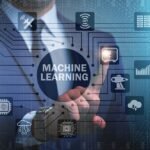Trustworthiness of AI applications in public sector
/ /
Artificial Intelligence (AI) has gained significant traction in the public sector, offering innovative solutions to complex challenges. However, to fully leverage the potential of AI, it is crucial to prioritize trustworthiness in the development, deployment, and governance of AI applications. This article delves into the importance of trustworthiness in the public sector’s use of AI and explores key considerations to ensure ethical and responsible implementation.
- Transparent and Explainable AI: Transparency is a cornerstone of trust in AI applications. Public sector organizations should strive to develop AI systems that are explainable and comprehensible to citizens. This involves adopting algorithms and models that provide clear rationales for decision-making, ensuring transparency in data sources and processing, and fostering public understanding of how AI is used to support public services. Transparent AI systems enable citizens to have confidence in the fairness and accountability of automated processes.
- Data Protection and Privacy: Protecting citizens’ data and privacy is paramount in building trust. Public sector organizations must adhere to robust data protection regulations and ethical guidelines when collecting, storing, and processing data for AI applications. Implementing stringent security measures, anonymizing personal information, obtaining informed consent, and ensuring data integrity are crucial steps in maintaining trustworthiness. Clear communication with citizens about data usage policies and safeguards also contributes to building trust in AI systems.
- Ethical AI Governance: Developing and implementing AI governance frameworks that adhere to ethical principles is essential. Public sector organizations should establish guidelines and standards that align with European values and ethics. This includes avoiding biases in AI algorithms, preventing discriminatory outcomes, and ensuring equal access to public services. Engaging experts, stakeholders, and citizens in the development of ethical AI frameworks promotes accountability, transparency, and inclusivity.
- Human-Centric Design and Decision-Making: AI systems in the public sector should prioritize human-centric design and decision-making. Humans must remain in control of critical decisions, with AI serving as an assistive tool. Public officials and administrators should be trained to understand AI capabilities, limitations, and potential biases. Emphasizing human oversight, accountability, and the ability to override automated decisions fosters trust and ensures that AI applications align with societal values.
- Continuous Monitoring and Evaluation: Trustworthiness of AI applications requires ongoing monitoring and evaluation. Regular audits, assessments, and reviews of AI systems are crucial to identify biases, unintended consequences, and areas for improvement. Public sector organizations should establish mechanisms for citizens and external stakeholders to provide feedback, report concerns, and participate in the monitoring process. Proactive measures to address potential issues and continuously enhance AI systems further reinforce trustworthiness.
Posted in On demand conference


































